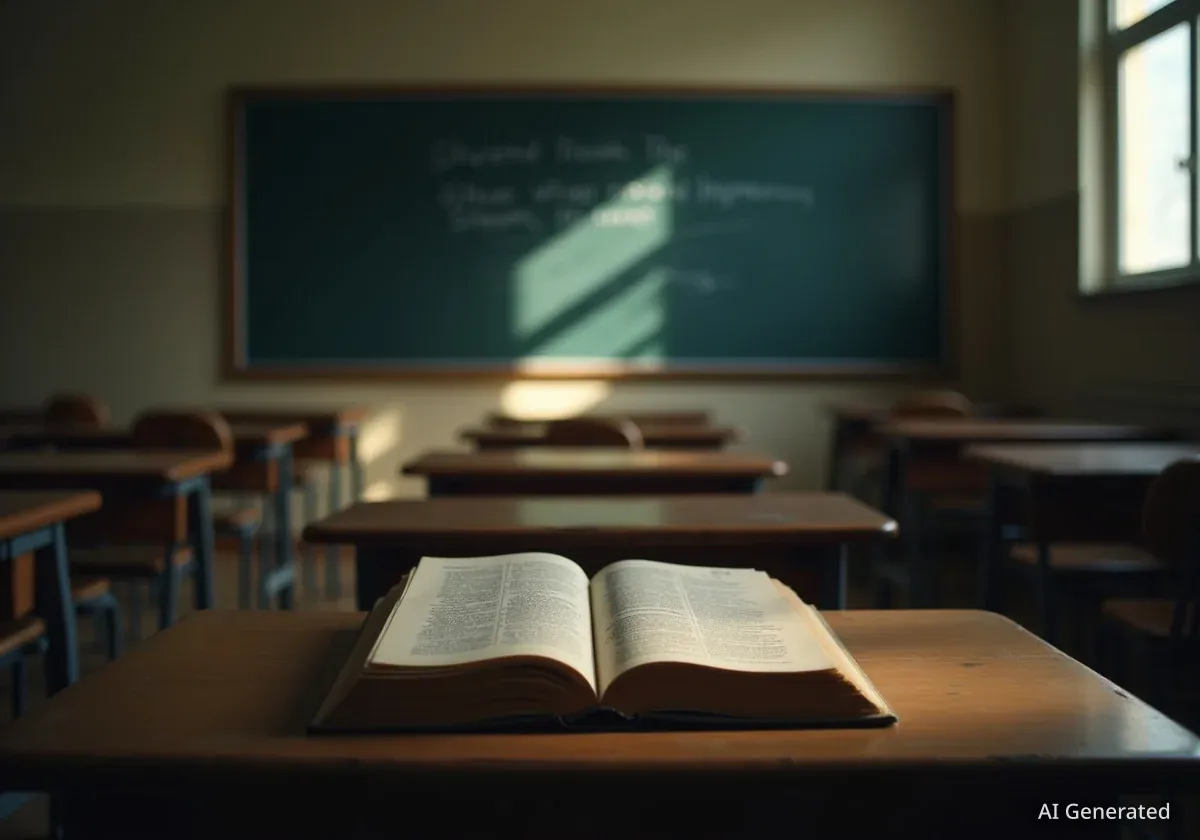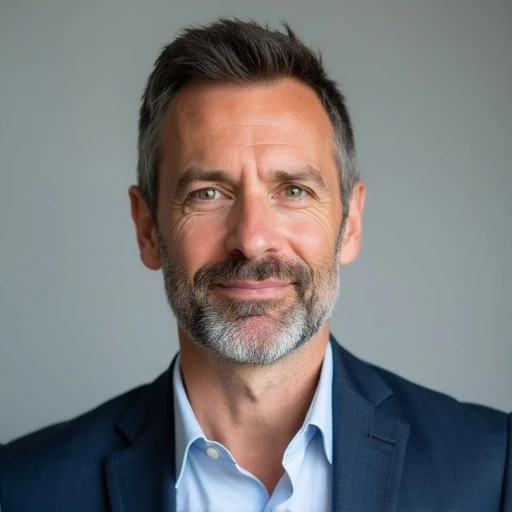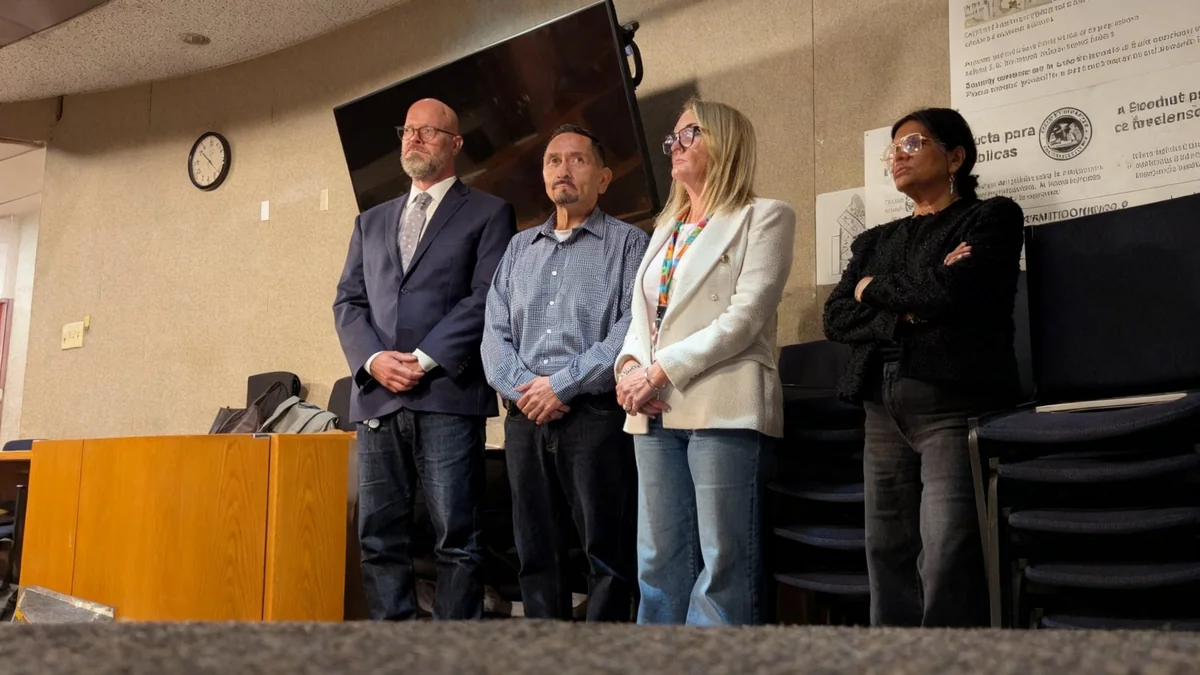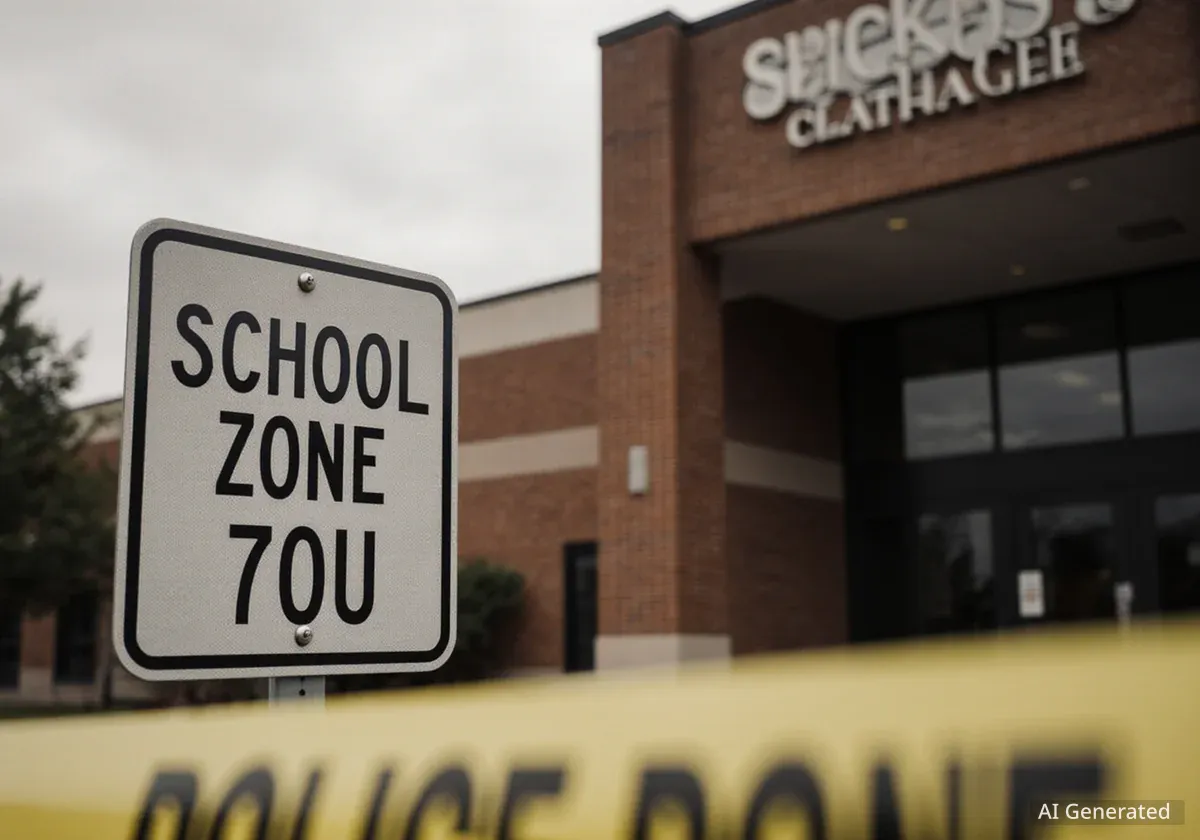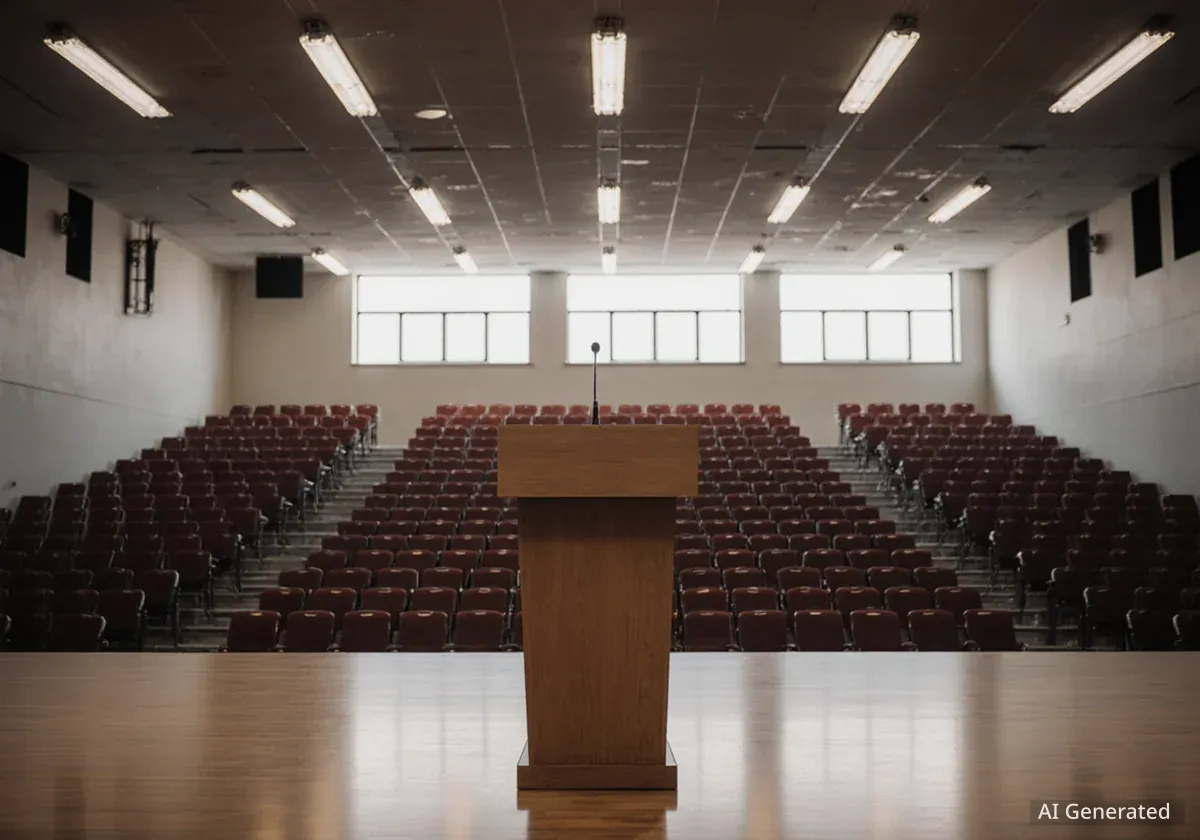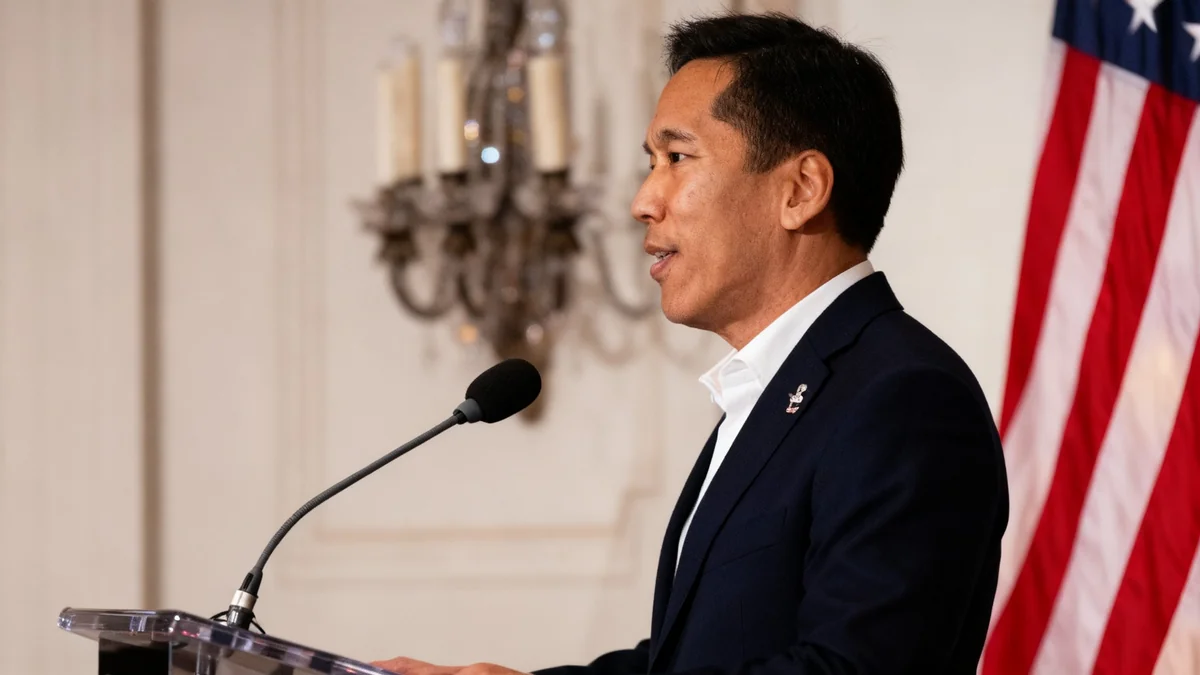A recent study from the Sandra Day O'Connor Institute reveals that a vast majority of civics educators across the United States are hesitant to teach key topics due to fear of controversy. The findings indicate that 86% of teachers identify potential backlash as a primary challenge, leading to widespread self-censorship in the classroom.
This development raises concerns about the quality of civics education at a time when experts believe skills like civil discourse are critically needed. The study's author points to a lack of support from school administrators and unclear educational standards as significant contributing factors.
Key Takeaways
- A study by the Sandra Day O'Connor Institute found 86% of civics educators see fear of controversy as a major challenge.
- 76% of teachers admitted to self-censoring their lessons to avoid pushback.
- Educators cite a lack of support from school leadership and unclear standards as root causes.
- This trend impacts the teaching of civil discourse, a skill considered essential for a functioning democracy.
- The issue is highlighted in Arizona, the first state to mandate a civics test for high school graduation.
Widespread Fear and Self-Censorship in Classrooms
A comprehensive survey of experienced civics educators has uncovered a troubling trend: teachers are increasingly afraid to teach their subject. The study, published by the Phoenix-based Sandra Day O'Connor Institute, provides stark figures on the state of civics education in the country.
Liam Julian, the study's author and a vice president at the institute, expressed surprise at the severity of the findings. "This shocked us," he stated, emphasizing the gap between the need for robust civics education and the reality in schools.
By the Numbers
- 86% of teachers report that fear of controversy is the primary challenge to teaching civics.
- 76% of civics teachers say they have self-censored in class due to fear of pushback.
The research suggests that this fear is not unfounded. According to Julian, many educators feel they will not be supported by their school's administration if a parent or community member complains about a lesson, even if the material was taught responsibly. This lack of institutional backing is a significant driver of self-censorship.
The Impact on Civil Discourse
The reluctance of educators to engage with potentially contentious topics has a direct impact on student learning. Julian explained that essential skills for a healthy democracy are often the first casualties of this classroom caution.
"You have skills like civil discourse, how to disagree with people productively, how to be comfortable talking to people who disagree with you," Julian said. "When these teachers are uncomfortable in this environment, the first thing to go are those conversations where students practice those civil discourse skills. So that's alarming."
He argued that the decline in practicing these skills in a controlled classroom environment has broader societal implications. The ability to engage in respectful debate is fundamental to democratic participation. Without it, polarization can deepen, and understanding between differing viewpoints can erode.
What is Civil Discourse?
Civil discourse is conversation intended to enhance understanding. It involves respectful dialogue between people with different viewpoints, focusing on mutual respect, listening, and a willingness to find common ground without necessarily abandoning one's own principles. It is considered a cornerstone of democratic societies.
Julian connects the dots between the decline in quality civics education and other negative trends. "As civics education has waned in this country, what is also happening? Declines in trust in government, rising polarization," he noted. He also pointed to an alarming increase in the number of young people who believe political violence is acceptable.
Arizona's Role in Civics Education
The conversation around civics education is particularly relevant in Arizona. A decade ago, it became the first state in the nation to require high school students to pass the U.S. citizenship test to graduate. This requirement applies to both public and charter schools.
The standards for this test are increasing. The graduating Class of 2026 will need to answer 70% of the 100 multiple-choice questions correctly, an increase from the previous 60% requirement. According to the Arizona Department of Education, 77.8% of the Class of 2025 successfully passed the test.
However, Julian emphasizes that civics education is more than just memorizing facts for a test. The core of the subject lies in understanding democratic principles and developing the skills to participate effectively in society. The current climate of fear among educators threatens this deeper learning.
A Call for Clear Standards and Support
To address this crisis, the study's author calls for a multi-level response. He argues that state legislators, policymakers, and local school districts must collaborate to establish clear standards for what should be taught in civics classes.
Once these standards are in place, it is crucial that school leaders provide unwavering support to teachers who adhere to them. This support structure is essential to give educators the confidence to facilitate important, and sometimes difficult, conversations in their classrooms without fear of reprisal.
The ultimate goal is to restore civics education to its central role in preparing students to be informed and engaged citizens, a mission championed by the late Supreme Court Justice Sandra Day O'Connor, for whom the institute is named.
Related Threats to Civic Infrastructure
The erosion of trust and civic knowledge is happening alongside more direct threats to democratic processes. In a separate but related development, Arizona's election infrastructure recently faced a cyberattack believed to be linked to Iran.
Arizona Secretary of State Adrian Fontes confirmed that hackers targeted two sections of his office's website in late June, following U.S. military action against Iranian nuclear sites. The targeted areas were the candidate information portal and the election night results page.
Details of the Cyberattack
The hackers replaced candidate photos with an image of Ayatollah Ruhollah Khomeini and posted a message in red and black text that read: "Khomeini's followers woke up! Our erosive revenge has begun."
Fontes stated that the attackers did not access personal voter information. However, he acknowledged it was "possible" they accessed personally identifying information for candidates, such as home addresses. The investigation remains ongoing.
Fontes defended his decision not to immediately inform federal authorities, such as the Cybersecurity and Infrastructure Security Agency (CISA), or state political parties, citing concerns that the incident would be politicized. "I just can't trust that this administration takes election security seriously, versus using it for political theater," he said.
This decision has drawn criticism. Arizona Republican Party Chairwoman Gina Swoboda argued that the choice not to share information was itself a political act. "I cannot say to the public I believe the system is secure and transparent, if the chief elections official tasked with assuring us all the system is secure and transparent is not willing to work with the stakeholders," she said.
These two issues—the fear paralyzing civics teachers and the direct cyberattacks on election systems—paint a picture of a democracy facing challenges from within and without. Both underscore the importance of robust education, institutional trust, and secure infrastructure in maintaining a healthy civic society.
